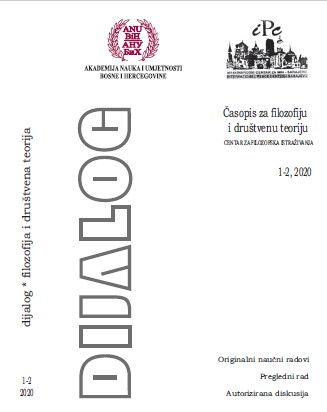Revizija Ustava Bosne i Hercegovine nakon dvadeset i pet godina implementacije mira – pitanje političke volje ili prihvaćene obaveze svih potpisnika Općeg okvirnog sporazuma za mir u Bosni i Hercegovini?
Revision of the Constitution of Bosnia and Herzegovina after twenty-five years of peace implementation - a question of political will or the accepted obligations of all signatories of General Framework Agreement for Peace in Bosnia and Herzegovina?
Author(s): Lada SadikovićSubject(s): Constitutional Law, Human Rights and Humanitarian Law, Political history, Government/Political systems, Security and defense, Transformation Period (1990 - 2010), EU-Accession / EU-DEvelopment, Peace and Conflict Studies
Published by: Akademija Nauka i Umjetnosti Bosne i Hercegovine
Keywords: Bosnia and Herzegovina; constitutional reform; Annex 4 - Constitution BiH; Annex 10 - High Representative; European Union; Council of Europe; Dayton peace agreement;
Summary/Abstract: The General Framework Agreement for Peace in Bosnia and Herzegovina was signed after the war 1992-1995 by nine signatories. Shortly after the signing of the Peace Agreement, it became clear that Bosnia and Herzegovina could not be a functioning state without a revision of Annex 4 - the Bosnia and Herzegovina Constitution. No significant progress has been made in the past twenty-five years, except for those decisions taken by the High Representative. Although the revision of the Bosnia and Herzegovina Constitution is a key existential issue, which has been repeatedly ordered to Bosnia and Herzegovina by both the Council of Europe and the European Union, two questions arise. First, whether the Bosnia and Herzegovina state can independently fulfill its international obligations without the active participation of all signatories of the General Framework Agreement for Peace in Bosnia and Herzegovina? And second, to what extent are the representatives of the international community, primarily the Institution of the High Representative, co-responsible for the stagnation and decay of Bosnia and Herzegovina? The answer is given in numerous Resolutions of the Council of Europe and the EU, which explicitly state that the revision of the Bosnia and Herzegovina Constitution must be carried out in order to strengthen state institutions at the expense of the Institutions at Entity level, under the pressure from the international community and through the action of the Office of the High Representative (Council of Europe 2004).
Journal: Dijalog - Časopis za filozofiju i društvenu teoriju
- Issue Year: 2020
- Issue No: 01+02
- Page Range: 123-137
- Page Count: 15
- Language: Bosnian

